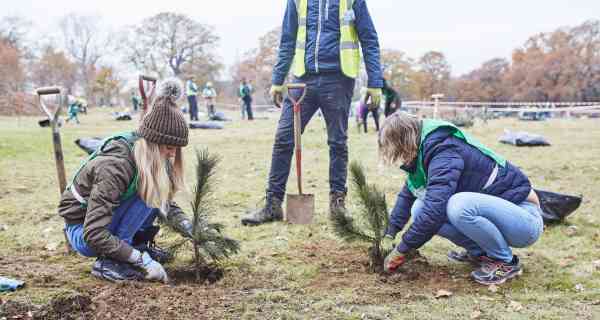The top read GB features of 2018
Local Government Secretary James Brokenshire has announced that local government spending power will rise to £46.4 billion next year, marking a real-terms 2.8 per cent cash increase for councils.
Recognising both the difficult financial situation facing councils and the £1 billion of extra funding for local services awarded in the recent budget, Brokenshire said that £240 million of the additional £650 million announced a few months ago for social care will be focused on winter pressures. The remainder is set to be used flexibly, on either adult or children’s services and, ‘when necessary, to relieve demands on the NHS’.
Despite the spend increase, 2019 is set to be another difficult year for the local government to balance the books. However, before we make any predictions and begin to guess government action, lets look back on the most popular features from Government Business magazine this year, with a range of topics, from air quality and cycling to the Cloud and first aid, favoured from our readership.
As always, thank you for visiting the Government Business website this year, and we look forward to bringing you more news, views and articles next year.

1- Top 10: air pollution as a local problem
Documents from the start of 2018 showed that more than £500,000 has been spent on failed court actions against clean air campaigners in less than 12 months. With poor air quality responsible for as many as 40,000 deaths a year, GB took a look at the councils fighting against that statistic and improving the air quality of their towns and cities through innovation and efficiency
2 - Revaluing parks and green spaces
Parks and green spaces are arguably the most universal of all our public services. They are used by the entire community, from pre-school children through to retired adults. Few public services have such a cross-cutting impact as parks and green spaces. Helen Griffiths, chief executive of the Fields in Trust, explained why in June
3 - Cycling can revitalise UK towns and cities
Investing in cycling infrastructure and enabling more people to get around by is one of the best ways to revitalise towns and city centres, wrote Rachel White, senior policy and political advisor at Sustrans, the walking and cycling charity
4 - Changing the relationship between the public sector and the cloud
The cloud and shared services have long been heralded as the answer by successive governments to drastically bring down the cost of purchasing and maintaining IT systems. In August, Catherine Kiaie looked at the adoption of the cloud in the public sector and addresses some of the key concerns that have been raised in the past about vendor lock-in and losing control of sensitive data
5 - Trees – a vital link in urban stormwater management
Trees for Cities is the only UK charity working at a national and international scale to improve lives through the creation of greener cities. Suzanne Simmons, projects director for the charity, talked to GB about flood risk management and how this can be achieved through the Trees for Cities’ urban tree planting and Edible Playgrounds programmes

6 - IaaS – considerations for the public sector
Infrastructure as a Service (IaaS) is now becoming an increasingly relevant and viable option for any serious business IT user. Developments in IaaS is encouraging more public sector IT managers to reconsider their platform options. Paul Timms, managing director at MCSA, explains why
7 - Improving people’s experiences of social care
Social care is very personal. People have their own care needs and we must understand those needs to ensure people receive the best possible care, delivered in the way and at a time when they need it. Alice Maynard, chair of the guideline committee at the National Institute for Health and Care Excellence, discusses new social care guidance and how to provide a positive care experience
8 - First aid at work – Your legal requirements
All employers, whether a sole trader or huge public-sector business, have a legal duty to make arrangements, to ensure their employees receive immediate attention if they are injured or taken ill at work. Earlier this year First Aid for Life’s Emma Hammett discussed the legal requirements surrounding first aid provision in the workplace

9 - UAS in government and public services
Drones or UAS are becoming increasingly used in public services and are recognised as an inherent part of UK government’s Industrial Strategy. Dr Sue Wolfe, from ARPAS-UK, provided us a review of government policy and how drones are being used to revolutionise some public services
10 - Energy recovery in UK waste management after Brexit
As the EU and the UK seek to move towards a more circular economy, in which waste is either prevented altogether or brought back into productive use, is there a continuing role for recovering energy from waste, alongside recovering materials? Roy Hathaway, Europe Policy Advisor at the Environmental Services Association, considered the prospects for the UK waste-to-energy sector


